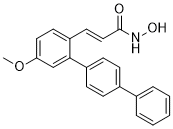ALDOA deficiency is associated with myopathy and hemolytic anemia. Notably, ALDOA has been found highly expressed in a variety of malignant cancers, including human lung squamous, renal cell and hepatocellular carcinomas. However, none of these reports examined the involvement of ALDOA in LSCC progression and metastasis. In this study, we reported that ALDOA is highly expressed in LSCC and its expression level is correlated with LSCC metastasis. Further, we demonstrated that depletion of ALDOA in lung cancer cells reduces its tumorigenicity and capability of migration. In the present study, we identified the glycolytic enzyme ALDOA was highly expressed in metastatic LSCC, and its express is highly correlated with LSCC metastasis, tumor grade and differentiation status. We further demonstrated that depletion of ALDOA expression in NCI-H520 cells reduced the capabilities of cell motility and tumorigenesis. These data suggest that ALDOA could be a potential marker for LSCC metastasis and a potential therapeutic target for drug development. A typical feature of tumor cells is highly active glycolysis associated to an inhibition of apoptosis. As first stated by Warburg, cancer cells need to activate glycolysis to proliferate despite the presence of oxygen because glycolysis provides most of the building blocks required for massive cell proliferation. ALDOA is a ubiquitous glycolytic enzyme that drives the glycolytic metabolic pathway in Gentiopicrin mammalian cells and is predominantly expressed in adult muscle tissue. Overexpression of ALDOA is observed in various cancers including lung, renal cell and hepatocellular carcinoma, suggesting enhanced glycolysis in these cancer cells. We also observed that depletion of ALDOA results in an upregulation of epithelial markers and a down regulation of mesenchymal markers, suggesting ALDOA is required for maintaining the mesenchymal morphology, a characteristic of migrating cells. Accordingly, our results indicate that overexpression of ALDOA was significantly relevant to high degree of metastasis and low degree of pathologic staging, as well as low survival rate and poor prognosis. These findings suggest ALDOA could be a potential marker for LSCC metastasis, prognosis prediction and as a target for clinical treatment of LSCC. Peripartum cardiomyopathy is a serious disease with unknown etiology, which occurs between the last month of pregnancy and Isoacteoside 5-month puerperium with significant morbidity and mortality. It’s interesting to notice that, a hypothesis currently being widely entertained is that PPCM may be a vascular disease. Antiangiogenic factor, which is markedly elevated in preeclampsia, is involved in the pathogenesis of PPCM. Another novel pilot study has demonstrated for the first time that the presence of autoantibodies against b1 is increased in patients with preeclampsia, which is the risk factor for PPCM. Whether the autoantibodies against cardiovascular receptors are associated with the elevation of antiangiogenic factors, thus leading to that further studies of PPCM still are needed. Toll-like receptors play key roles in both the innate and adaptive immune systems through recognition of pathogen associated molecular patterns and induction of inflammatory responses. These receptors are expressed not only in immune cells but also in epithelial cells, including various cancer cells. Accumulating evidence indicates that TLRs play important roles in cancer progression. Activation of most TLRs promotes inflammation in the tumor microenvironment and mediates tumor cells immune escape. However, recently, a portion of activated TLRs have also  been shown to activate the immune system against cancer.
been shown to activate the immune system against cancer.